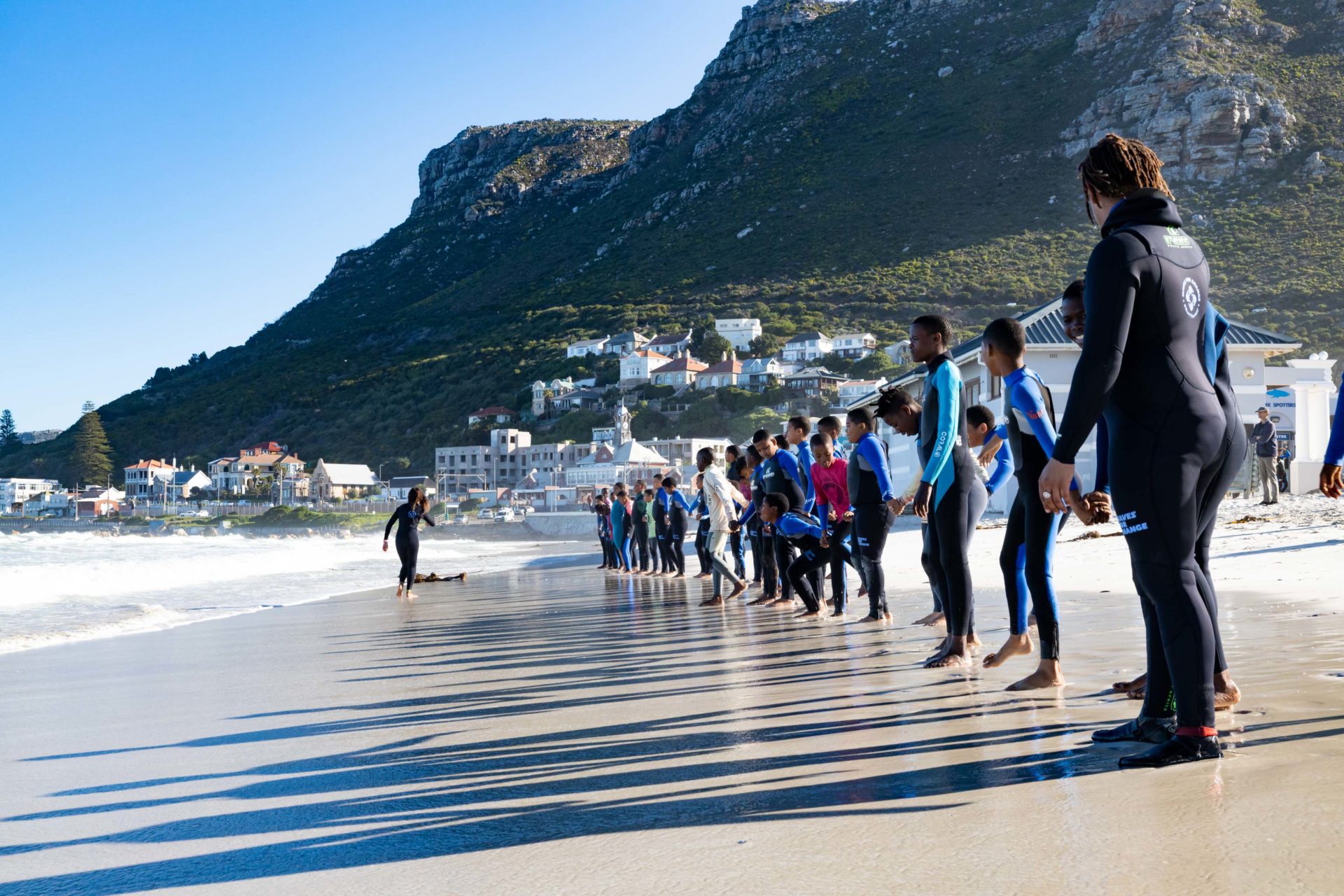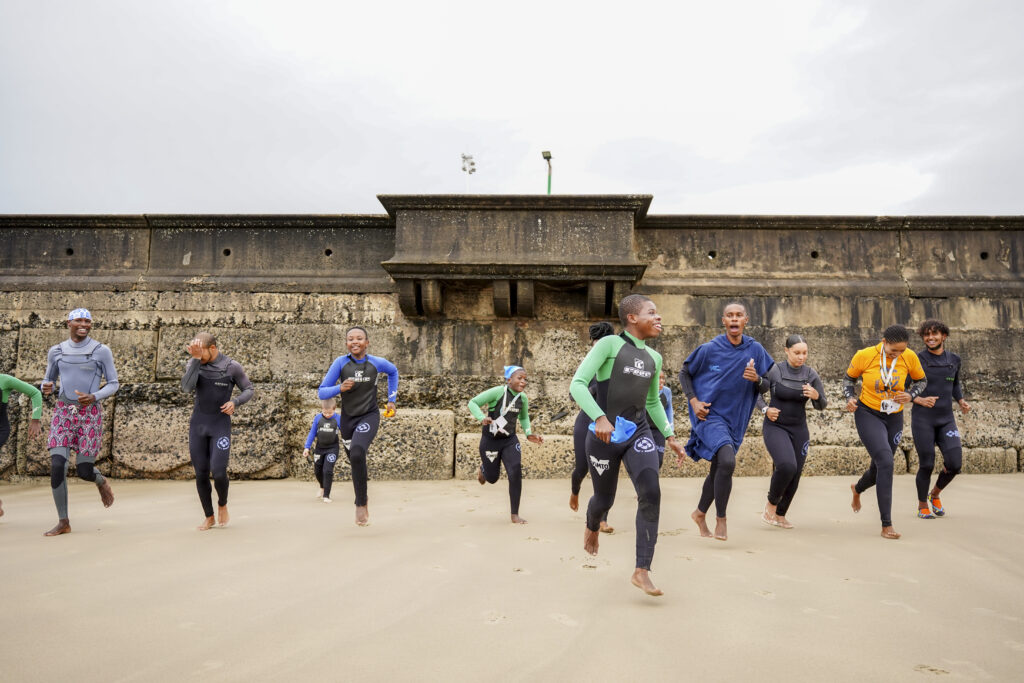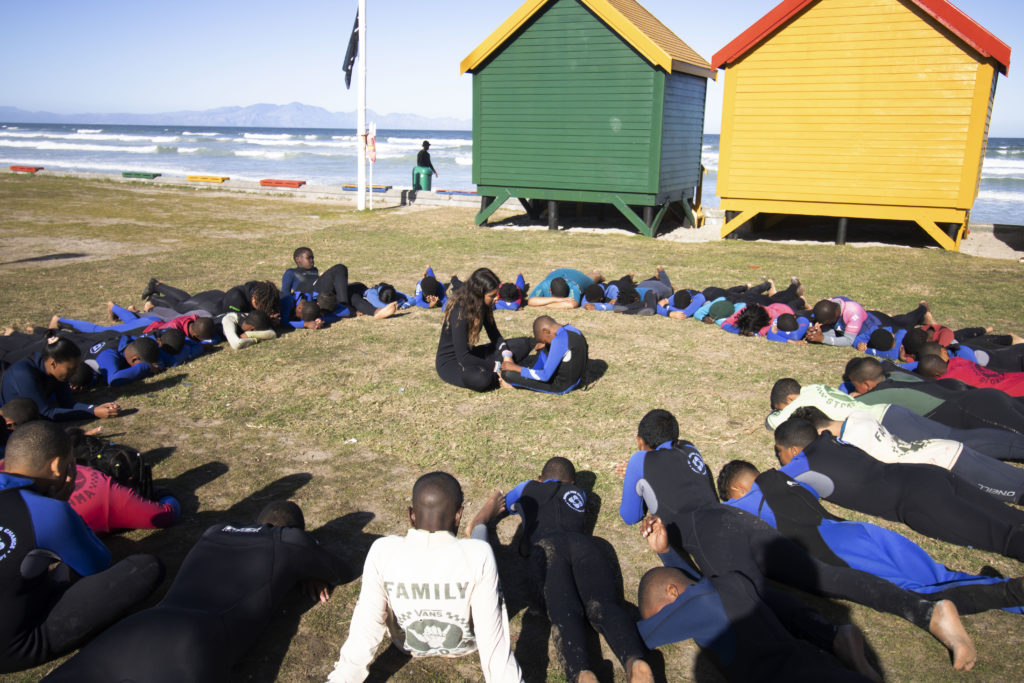W4C Surf Therapy: Learning Brief 2022

On Wednesday 5th October 2022, Waves for Change (W4C) presented its 2022 Learning and Partner Event: Closing the Mental Health Treatment Gap in South Africa.
The event, hosted at the Hyatt Regency Cape Town, and streamed live, brought together practitioners, researchers, grassroots community organisations, donors and government departments, working in the area of child and adolescent mental health (CAMH).
Closing the Treatment Gap in South Africa was developed by W4C in recognition of recent findings published in the latest South African Child Gauge, which confirmed two thirds of children in South Africa are living in poverty, and have huge exposure to maltreatment and violence in homes, schools and communities; putting children at extremely high risk of developing mental health challenges. In line with 2022’s World Mental Health Day theme, the event provided an opportunity for W4C to advocate for mental health and well-being for all – shining a light on the urgent need expand services to support children and youth living in the most under-served communities in South Africa, who currently experience greater than 90% treatment gaps.
A recent article published in June 2022 in the Daily Maverick, developed by sector experts, highlighted that child and adolescent mental health services in South Africa are in crisis. W4C convened this event in response to recent calls for solutions and support to strengthen the much-neglected CAMH system. The event provided an opportunity to share latest research findings on the impact of W4C’s Surf Therapy programmes, underpinned by its 5 Pillar Method.
At the event, W4C called on departments and donors to utilise the W4C service as a blueprint for how group-based physical activity services can task shift mental health prevention / promotion services to caring coaches and extend the response to the mental health crisis beyond dedicated psychological and psychiatric services, and into the community.
Event Speakers
Speakers and guests included representatives from the Department of Social Development and the Department of Health.
Neshaan Peton, Deputy Director of Comprehensive Health, Khayelitsha Eastern Substructure Metro, outlined that health is Everyone’s Business programme. She emphasised the need for early intervention, confirming that mental health prevention and promotion is a strategic priority of the Department of Health, and that partnerships with community-based programmes such as W4C are an important part of ensuring children have a sense of belonging and access to protective spaces to prevent future illness. Peton confirmed that due to huge challenges such as violence in the community and facilities being understaffed, the current package of care offered by the Department of Health is fairly fragmented, and that the referrals in and out of the W4C Surf Therapy programme provided essential support to strengthen the response and to stop children falling through the gaps.
Dr Stella Makitimi, Mental Health Programme Coordinator at the Western Cape Department of Health, Khayelitsha Eastern Substructure, outlined the resourcing challenges and worrying treatment gaps in existing service provision, based on findings of her PhD and other related studies. She also outlined that although a comprehensive policy exists for CAMH services in South Africa, the reality across different districts varied, and that partnerships with Department of Social Development, and NGO’s, that can address the environmental stressors and provide evidence based services to improve children’s self esteem, social connectedness, and ability to self regulate, such as W4C’s Surf Therapy programmes, are essential if we are to make progress on reducing huge treatment gaps.
Nicci van der Merwe, Director of Monitoring, Evaluation, Research and Learning at W4C concluded the event by presenting findings from W4C’s latest research, funded by Laureus Sport for Good, in partnership with New School for Social Research New York. The study, conducted with 233 violence-exposed children from under-resourced communities in South Africa, was led by youth researchers; caring coaches that were trained to collect data in culturally and age appropriate ways. Caring coaches were supervised by mental health experts and the W4C support hub, to collect, analyse and interpret findings.
Findings
All 233 participants in the study endorsed extremely high rates of exposure to violence, such that 100% of participants had witnessed violence, and all but 2 participants (98.2%) had directly experienced violence.
The key findings of the study shared by Van der Merwe confirmed the effectiveness of Surf Therapy and the 5 Pillar Method in key mental health prevention and promotion outcomes, listed as essential by the Departments of Health and Social Development in services and solutions to reduce the treatment gap in CAMH services. These outcomes included improved social connectedness, reduced impulsivity and more adaptive sensation seeking (such as bravery) rather than maladaptive (such as seeking danger).
The study confirmed that the W4C’s Surf Therapy programme is an efficacious, trauma-informed intervention for violence-exposed children and youth. W4C Surf Therapy and the underpinning 5 Pillar Method therefore presents an exciting model for scale, which could provide an essential solution for huge treatment gaps in South Africa, to ensure we respond to the crisis in CAMH, and are not found wanting again…
For a downloadable version of our learning brief, please access it through W4C Surf Therapy Learning Brief 2022


